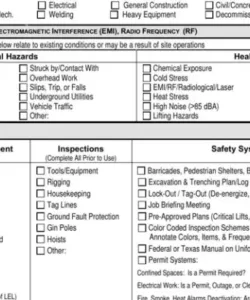A post hearing brief is a legal document submitted to the court after a hearing. It summarizes the arguments made by each party and provides the court with a basis for making a decision. Post hearing briefs can be complex and time-consuming to write, but they can also be an effective way to advocate for your client’s position. Below is a template to help you draft a compelling post hearing brief.
Statement of the Case
The first step in drafting a post hearing brief is to provide a brief overview of the case. This should include the names of the parties, the nature of the dispute, and the procedural history of the case. The statement of the case should be concise and objective, and it should provide the court with a clear understanding of the context of the hearing.
For example, you might write: “This case is a breach of contract action brought by Plaintiff against Defendant. The Plaintiff alleges that the Defendant failed to perform its obligations under a written contract. The Defendant denies the allegations and asserts that the Plaintiff breached the contract first.”
Summary of the Arguments
The next section of the post hearing brief should summarize the arguments made by each party at the hearing. This should include a discussion of the legal issues raised by the parties, the evidence presented, and the arguments made by counsel. The summary of the arguments should be fair and impartial, and it should provide the court with a clear understanding of the positions of the parties.
For example, you might write: “At the hearing, the Plaintiff argued that the Defendant breached the contract by failing to deliver the goods on time. The Plaintiff presented evidence of the purchase order, the delivery date, and the Defendant’s failure to deliver the goods. The Defendant argued that it was not liable for breach of contract because the delay in delivery was caused by a force majeure event. The Defendant presented evidence of the force majeure event and its efforts to mitigate the delay.”
Analysis
The analysis section of the post hearing brief is where you will provide your own analysis of the legal issues raised by the parties. This is your opportunity to persuade the court to adopt your client’s position. In your analysis, you should discuss the applicable law, the evidence presented at the hearing, and the arguments made by counsel.
Conclusion
The conclusion of the post hearing brief is where you will summarize your main arguments and ask the court to rule in your favor. The conclusion should be concise and persuasive, and it should leave the court with a clear understanding of your client’s position. For example, you might write: “For the foregoing reasons, the Plaintiff respectfully requests that the Court enter judgment in its favor and against the Defendant.”


